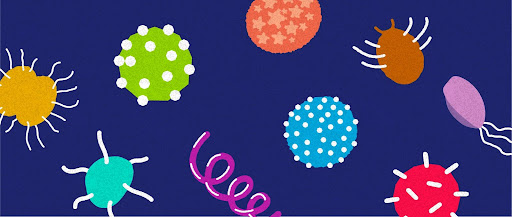| Decoding Trichomoniasis: Your Complete Guide |
Decoding Trichomoniasis: Your Complete Guide
Trichomoniasis, commonly known as “trich,” is a prevalent sexually transmitted infection (STI) caused by the protozoan organism Trichomonas vaginalis. Although it is easily treatable, it often goes unnoticed as symptoms are absent in a significant percentage of cases. This blog aims to provide a concise and informative guide on trichomoniasis, covering its symptoms, causes, risk factors, diagnosis, treatment, complications, prevention, and more.
Symptoms:
Trichomoniasis symptoms can vary, and it’s noteworthy that many individuals may not experience any signs at all. The Centers for Disease Control and Prevention (CDC) reports that only 30% of individuals with trichomoniasis experience noticeable symptoms which may include:
In People with Vaginas:
- Vaginal discharge (white, grey, yellow, or green, often frothy with an unpleasant smell)
- Vaginal spotting or bleeding
- Genital burning or itching
- Genital redness or swelling
- Frequent urge to urinate
- Pain during urination or sexual intercourse
In People with Penises:
- Discharge from the urethra
- Burning during urination or after ejaculation
- Frequent urge to urinate

Risk Factors and Causes &Transmission:
Several factors increase the risk of trichomoniasis, including:
- Multiple sexual partners
- History of other STIs
- Previous trichomoniasis transmissions
- Unprotected sex without a condom or barrier method.
Causes and Transmission:
Trichomoniasis is caused by the protozoan organism Trichomonas vaginalis and is primarily transmitted through genital contact during sex or from shared sex toys. It can infect the vagina, urethra, or both in women, while in men, the infection typically occurs in the urethra. Notably, trichomoniasis is not transmitted through normal physical contact, such as hugging, kissing, sharing dishes, or using toilet seats.

Diagnosis:
Diagnosing trichomoniasis involves a physical exam and laboratory tests. Tests may include cell cultures, antigen tests, tests for Trichomonas DNA, and examination of samples of vaginal fluid, urethral discharge, or urine under a microscope. Since symptoms can overlap with other STIs, diagnosis based on symptoms alone is unreliable.
Treatment:
- Antibiotics: Trichomoniasis can be easily cured with antibiotics such as metronidazole (Flagyl), secnidazole (Solosec) or tinidazole (Tindamax). It is important to remember only to take antibiotics after medical intervention.
- Partner Treatment: Ensuring all sexual partners are tested and treated is vital to prevent reinfection. Abstaining from sexual contact for a week after treatment is advised.
Outlook and Complications:
- Cure and Reacquisition: With treatment, trichomoniasis is usually cured within a week. However, reacquisition is possible, emphasising the importance of partner treatment.
- Complications:
- Increased susceptibility to other STIs
- Genital inflammation elevating HIV risk
- Association with conditions like gonorrhoea, chlamydia, and bacterial vaginosis
- Potential complications like pelvic inflammatory disease (PID)
- Higher Risks during Pregnancy: Pregnant individuals with trichomoniasis may face increased risks of premature delivery, low birth weight, and potential transmission to the baby during delivery.
Prevention:
- Abstinence or Safer Sex: Full prevention involves abstinence from sexual activity. Though practising safer sex, including condom use during intercourse, significantly reduces the risk of trichomoniasis and other STIs.
- Regular Testing: Regular testing for STIs is crucial, especially for individuals with multiple sexual partners or a history of STIs.
Conclusion
Trichomoniasis is a common yet treatable STI that often goes unnoticed. Understanding its symptoms, causes, and preventive measures is vital for maintaining sexual health. Practising safe sex, regular testing and open communication with partners contribute to effective prevention and control of trichomoniasis. If you suspect an infection, seeking medical advice promptly is key to a quick recovery and minimising potential complications. Remember, knowledge is power when it comes to your sexual well-being.
Author

